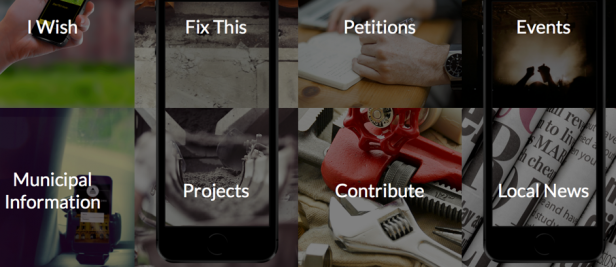Barcelona is one of the oldest examples of a city that deploys technology as part of its government. Sensor networks have been producing an array of data on transport, energy usage, noise levels, irrigation, and many other topics without having much impact on the life of citizens or solving the underlying problems.
In 2015, Francesca Bria, chief technology, together with mayor Ada Colau started to reverse the smart city paradigm: Instead of starting from technology and extracting all the data we started aligning the tech agenda with the agenda of the city, she said.
One of the first challenges was using technology to increase ordinary citizen’s impact on policy. A group of civic-minded coders and cryptographers created a brand-new participatory platform, Decidem (which means We Decide in Catalan). For more information watch the video below.
Spain offers more inspiring examples. The city of Madrid has also created a participatory citizen platform, not for chance called Decide Madrid, which is in many respects comparable with Decidem, as this short video demonstrates.
The most important features of both platforms are:
Active participation in policy making
Citizens are stimulated to suggest ideas, debating them, and vote. In Barcelona, more than 40.000 citizens have suggested proposals, which form 70% of the agenda of the city administration. The most frequently mentioned concerns are affordable housing, clean energy, air quality and the public space.
The Municipal Action Plan of Barcelona includes almost 7,000 proposals from citizens. Decidem enables citizens to monitor the state of implementation of each of them to increase citizen’s engagement.
Debating
Decide Madrid and Decidem emphasize the value of being informed as starting point for deliberation. Citizens can start discussions on their own and participate in threaded discussions started by others.
As soon as citizens feel informed and have exchanged opinions voting can start. Both Decide Madrid as Decidemhave a space where citizens can make proposals and seeks support. Proposals that reach enough support are prepared for voting. These votes generally are advising the city council.
Policy preparation
Decide Madrid enables citizens amendment legislative texts. The public is allowed to commend any part of it and to suggest alternatives. This also might result in discussions and the suggestions are used to improve the formulations.
Data governance
Decidem and Decide Madrid are also data portals that show data that have been collected in the city, partly on citizens themselves. Decidem has the intention, because of its participation in the European project Decode to enable citizens to control the use of data of their own for specific purposes.
Hybrid solutions
As not every citizen has a computer or is skilled to use the Internet platforms, both cities combine virtual discussions and discussion in a physical space.
It is not only the traditional rivalry between Barcelona and Madrid that has inspired the development of two comparable systems, independently from each other. It is also the fact that the Spanish people had to fight for democracy until rather recently. Democratic institutions that have long existed in many other countries had to be reinvented, but with a 20th-century twist.
The community of Madrid has developed Decide Madrid together with CONSUL, a Madrid-based company. CONSUL enables cities to develop citizen participation on the Internet quickly and save. The package is very comprehensive. The software and its use are free. CONSUL can be adjusted by each organization to meet its own needs. As a result, Consul is in use in 130 cities and organizations in 33 countries (see the map above) and reaches out around 90 million citizens worldwide.
In contrast with e-Estonia, the topic of a former post, the footing of Decidem and Decide Madrid is enabling citizens to make their voice heard and to participate in decision-making. Both cities offer excellent examples of e-governance. e-Governance reflects the mutual communication between municipal authorities and citizens using digital tools to align decision making with the needs and wants of citizens. Instead, the intention of e-Estonia is to improve the efficiency of the operation of the state. Both aims are complementary.
I will regularly share ‘snapshots’ of the challenge of bringing socially and ecologically sustainable cities closer using technology if useful. These posts represent findings, updates, and additions to my e-book Humane cities. Always humane. Smart if helpful. The English version of this book can be downloaded for free below.





